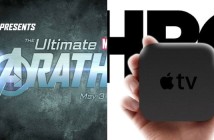Editor’s Note: Projecting features a selection of great film and television focused writing from around the internet.
Daniel Carlson urges the Criterion Collection to be more like it was in the LaserDisc days and embrace pop cinema, for Movie Mezzanine:
By pop cinema, I mean the kind of American releases that cinephiles consider canonical when drafting a list of vintage and modern classics. Criterion’s no stranger to these kinds of movies: they recently put out The Big Chill and will soon reissue Tootsie, both carryovers from their LaserDisc days. And many other titles originally issued on those giant platters have since found their way to new life on higher-definition formats. But just as many of their more “traditional” releases have yet to be relicensed, and that’s a shame, because there’s tremendous value in appreciating Hollywood product for what it is.
Matthew Monagle, in trying to understand his shifting reaction towards Paul Thomas Anderson’s work, breaks down just how the filmmaker has changed, for Film School Rejects:
And so began five years of obsessing over Anderson’s previous films – Hard Eight, Boogie Nights, Magnolia – and hyping myself up for the release of his next project. It never stood a chance. Like Gleiberman, I was left cold by the lack of humanity in There Will Be Blood and confused by my reaction. The Anderson I had come to love and the Anderson who emerged with There Will Be Blood seemed to be two different filmmakers, and I spent a lot of time trying to understand why this was the film that garnered Anderson unilateral praise.
Greg Miller discusses recent research into how the brains of audience members synchronize during movies, for Wired:
Picture a movie theater, packed for the opening night of a blockbuster film. Hundreds of strangers sit next to each other, transfixed. They tend to blink at the same time. Even their brain activity is, to a remarkable degree, synchronized.
It’s a slightly creepy thought. It’s also a testament to the captivating power of cinema, says Uri Hasson, a psychologist at Princeton University.
Zoe Chevat delves into the issue of not giving female heroines a sense of humor, for Bitch Media:
I felt this absence particularly in this summer’s booming blockbuster Guardians of the Galaxy, which features Zoe Saldana as Gamora, a tough-as-nails assassin who responds to her fellow Guardians’ jokes with eye roles and stern requests that they get down to business. But she’s hardly the only one. Humorless “strong female characters” abound, not only in Marvel’s canon, but in dozens of movies and television shows of similar bent.




